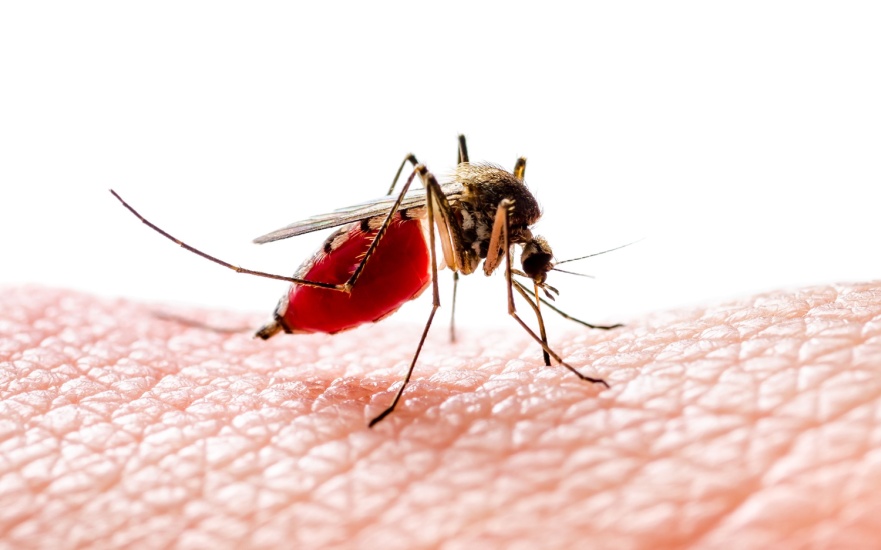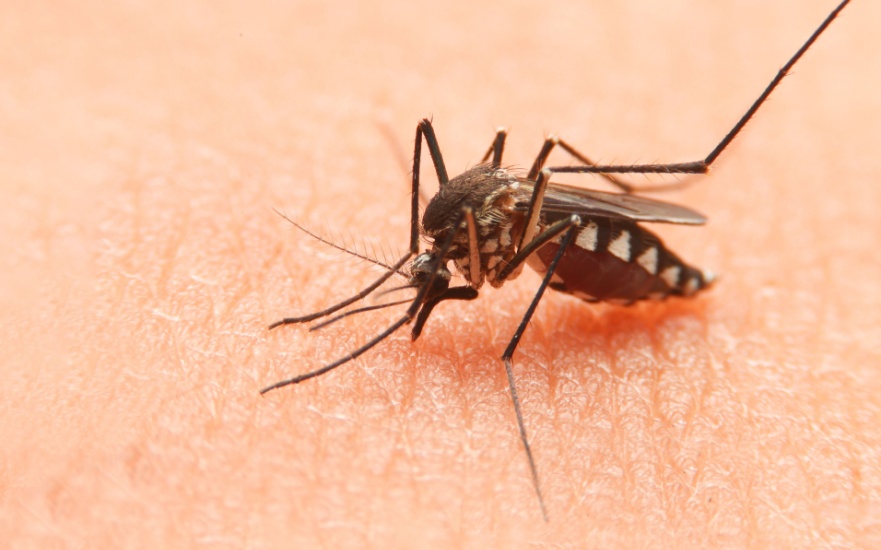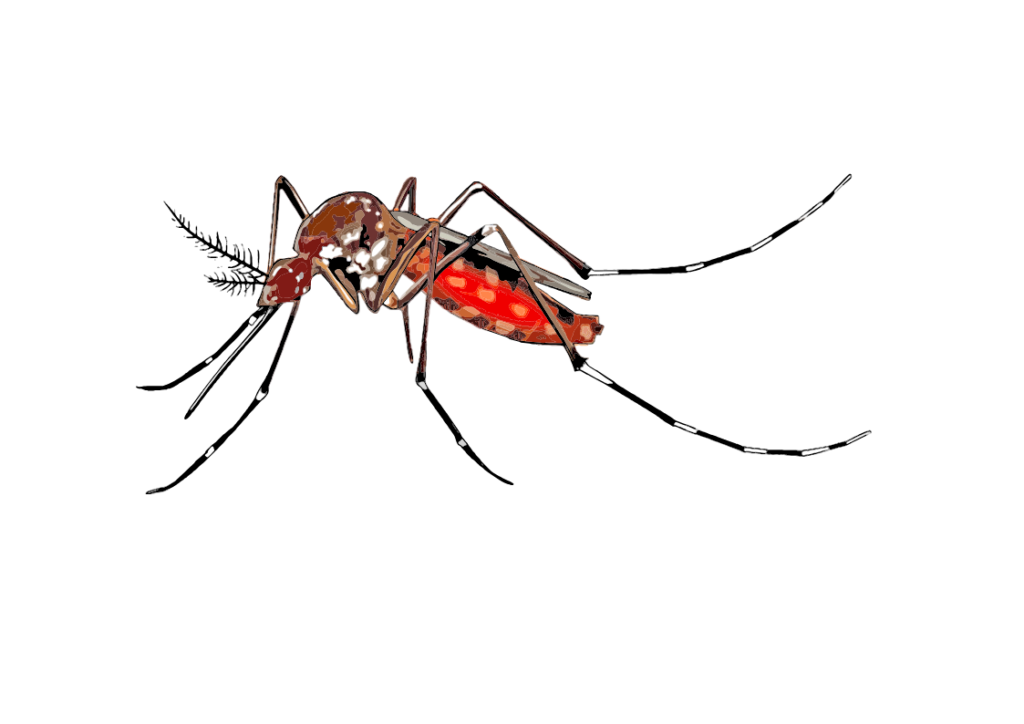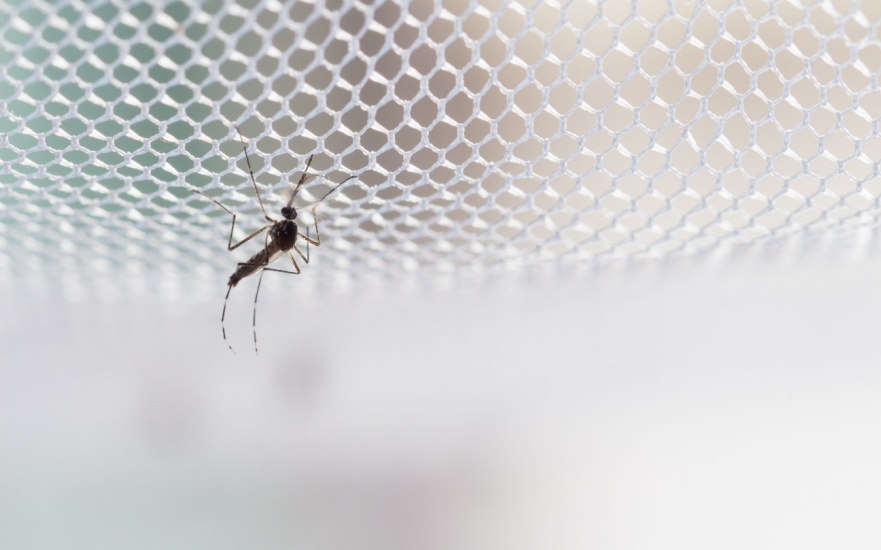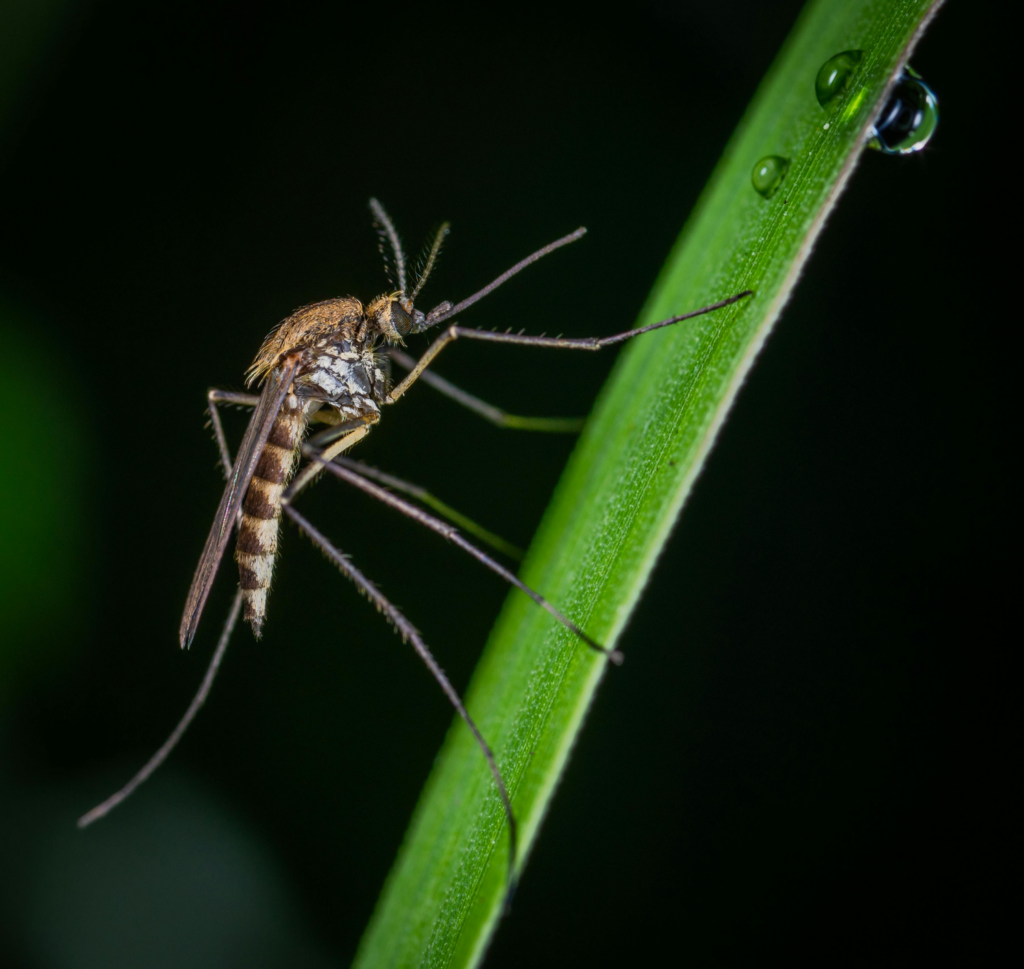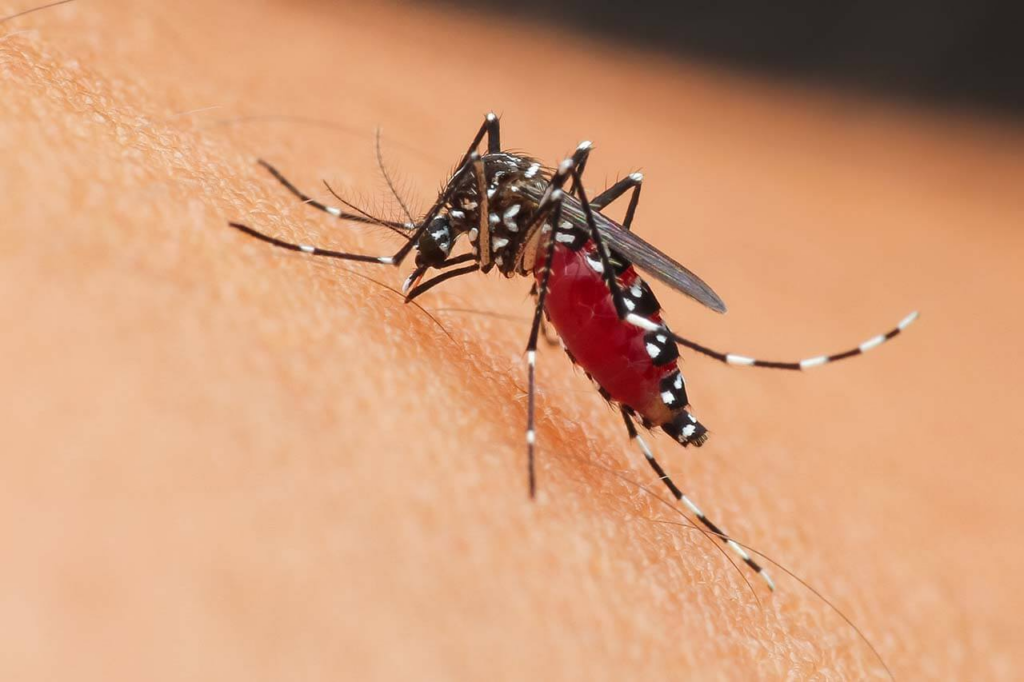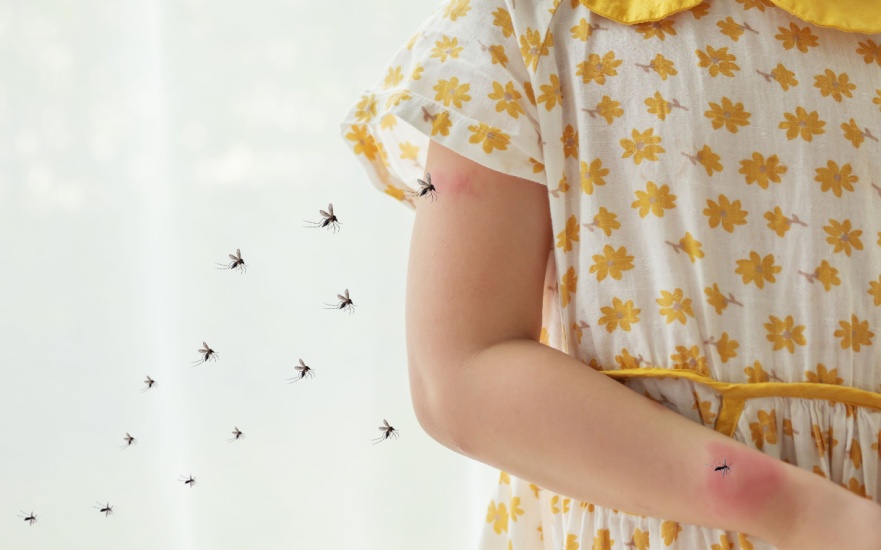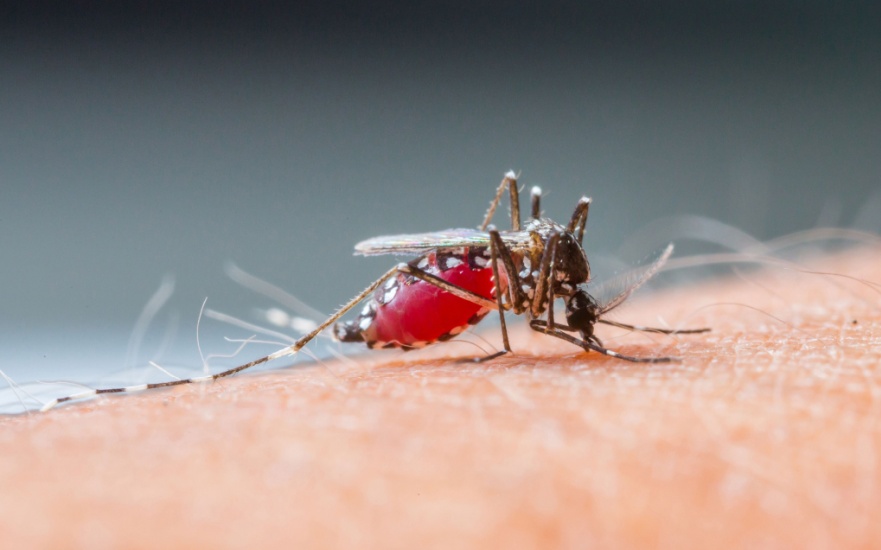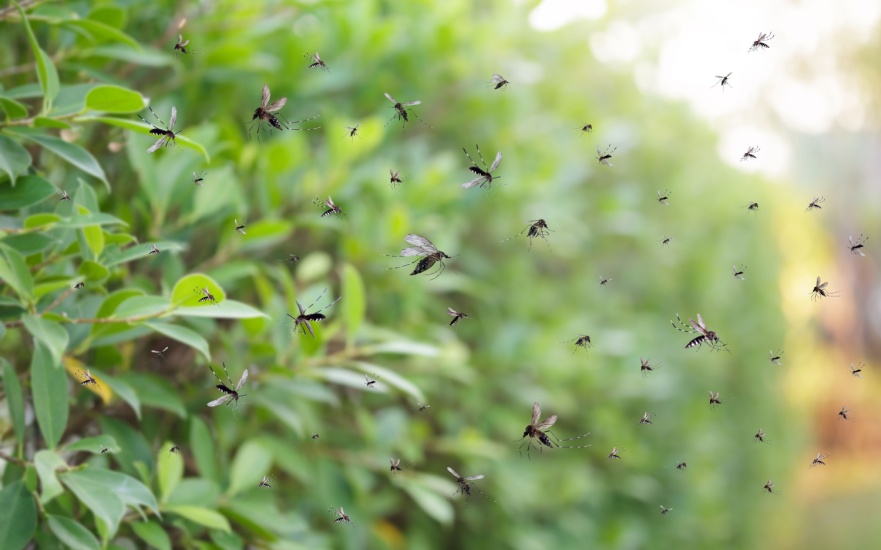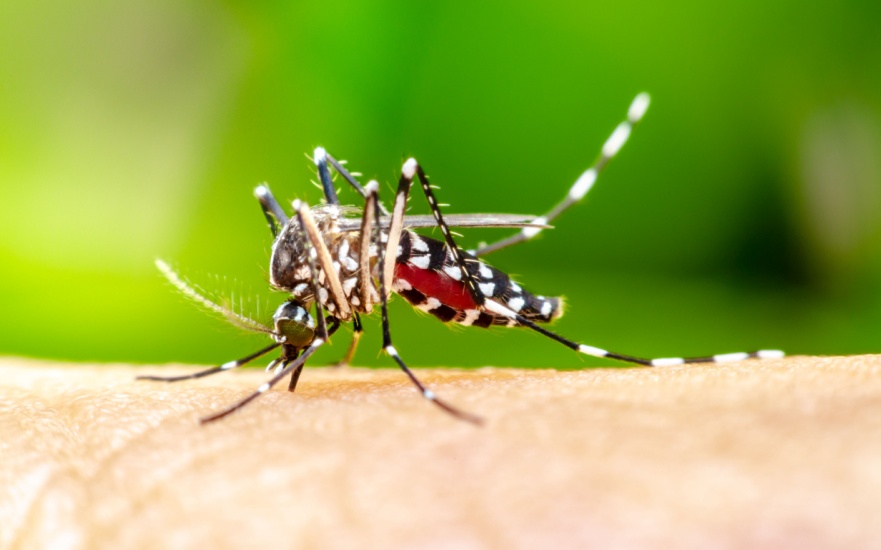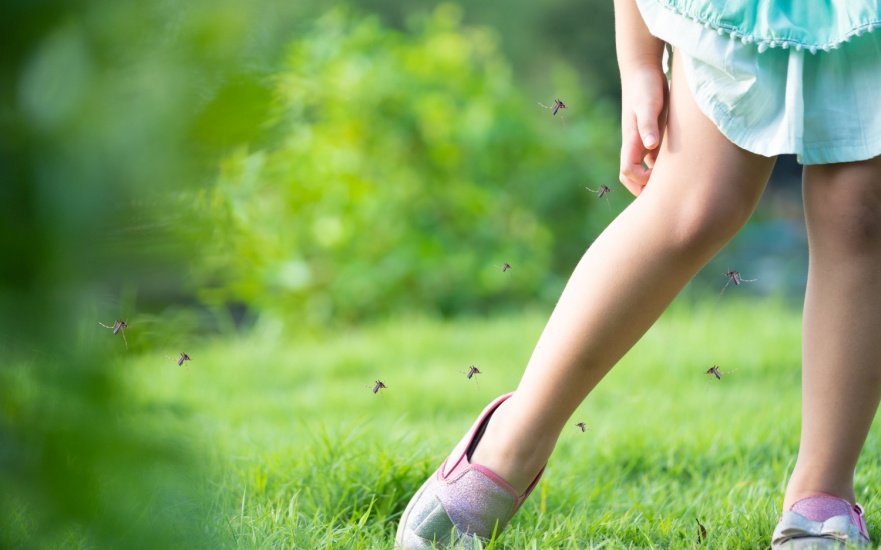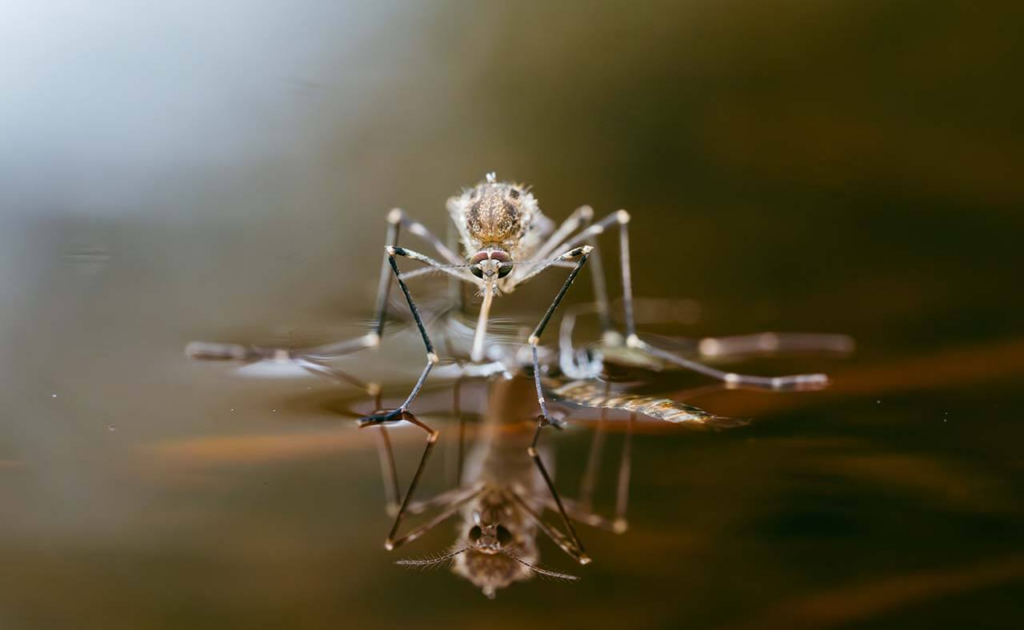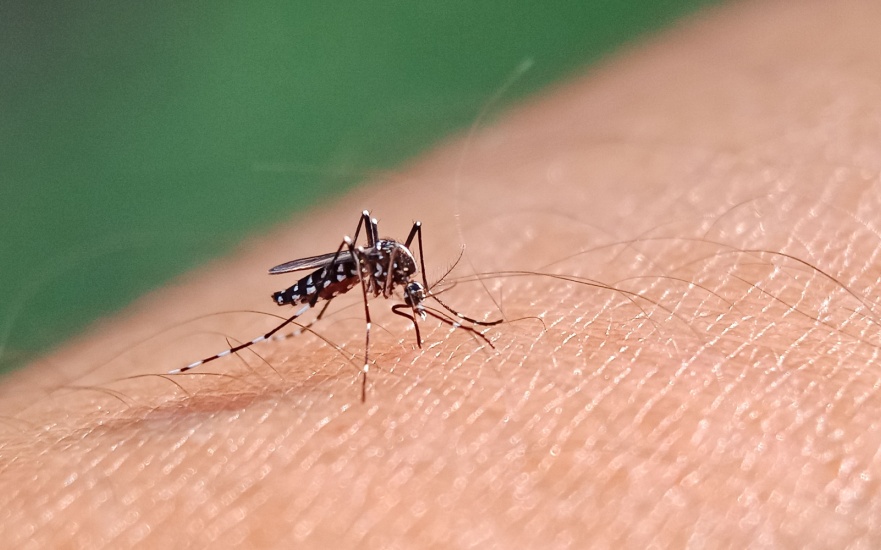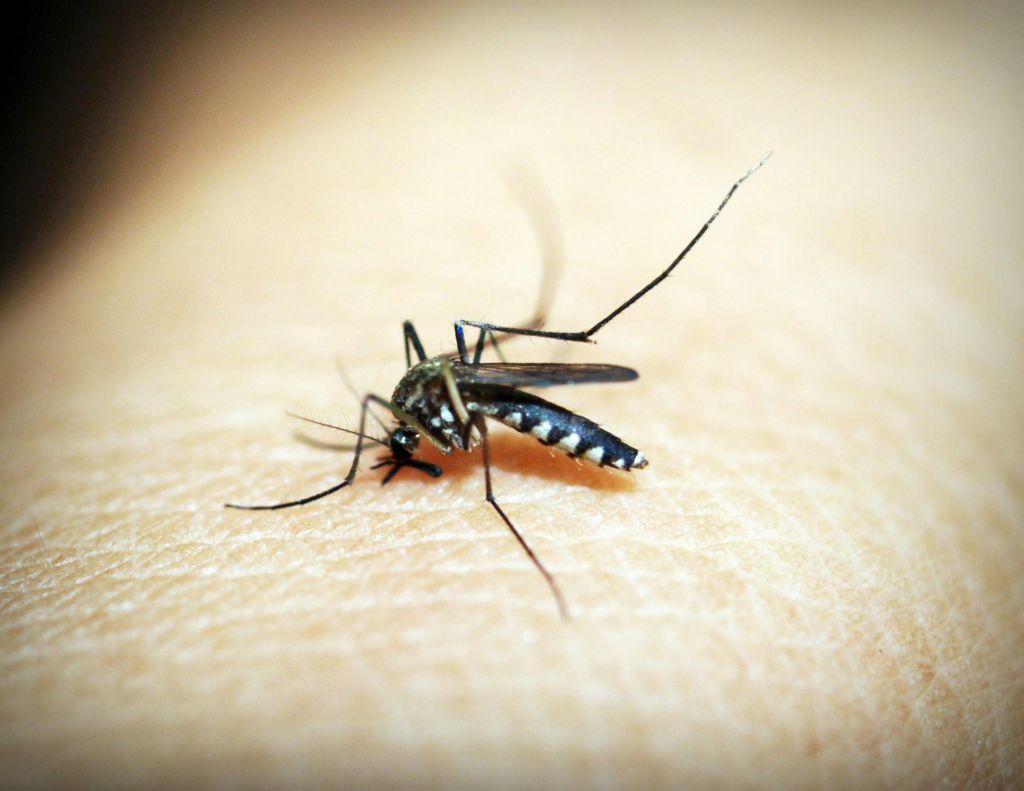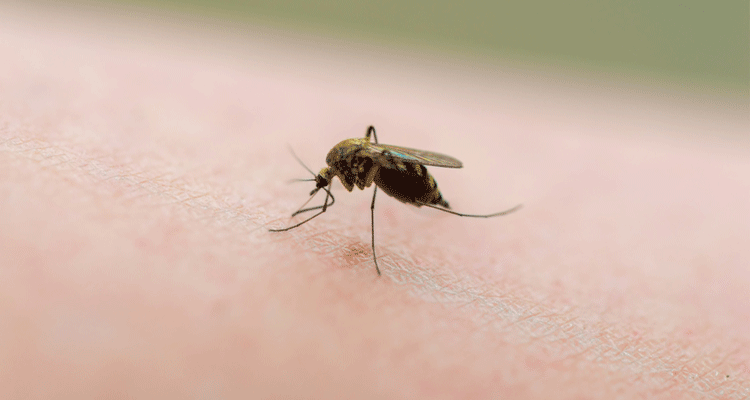We often ignore the dangers in our own backyards. Mosquitoes are a big threat because they spread diseases to humans.
Mosquitoes carry and spread diseases like West Nile virus and malaria. When they bite, they pass on these diseases to others. For more info, check out our guide here.
It’s important to know about mosquito-borne diseases. At Vinx Pest Control, we teach people about the dangers of mosquito bites. We also show how to avoid them.
Key Takeaways
- Mosquitoes are vectors for diseases like West Nile virus and malaria.
- Diseases are transmitted through the saliva of infected mosquitoes during bites.
- Understanding mosquito-borne diseases is key to prevention.
- Effective prevention measures can significantly reduce the risk of disease transmission.
- Vinx Pest Control is a trusted resource for managing mosquito populations.
The Truth About Mosquitoes and Disease Transmission
It’s important to know how mosquitoes spread diseases. They get sick when they drink blood from an infected host. Then, they can pass the disease to others through their bites.
How Disease Transmission Occurs
Disease spread by mosquitoes is a complex process. Here’s what happens:
- A mosquito drinks blood from an infected host, getting the disease.
- The disease grows inside the mosquito.
- When it bites another host, it spreads the disease through its saliva.
Why These Insects Are Effective Vectors
Several things make mosquitoes good at spreading diseases. These include:
- They drink blood from many hosts, spreading disease easily.
- They live in many places, making them a big threat everywhere.
- Female mosquitoes need blood to make babies, so they bite often, spreading disease more.

Mosquitoes: The World’s Deadliest Animals
Mosquitoes are known as the deadliest animals in the world. They spread many diseases. There are over 200 species in the United States alone. This makes them a big problem for global health.
Global Health Impact Statistics
Mosquito-borne diseases kill hundreds of thousands of people every year. These diseases are a big reason for death, mostly in warm places.
- Millions of people get sick from mosquito-borne diseases every year.
- Diseases like malaria, dengue fever, and Zika virus are big threats.
- These diseases not only kill people but also hurt the economy a lot.
Understanding Mosquito Biology
To know why mosquitoes spread diseases, we need to learn about them. We must understand how they eat and reproduce.
Feeding Mechanisms
Mosquitoes eat nectar and, for females, blood. They have special ways to pierce skin and suck blood well.
Reproduction Patterns
Mosquitoes lay eggs in water, which hatch into larvae. Knowing how they reproduce helps us fight them better.
Common Mosquito-Borne Diseases in the United States
Mosquito-borne diseases are a big worry in the United States. Many viruses spread through mosquito bites. It’s important to know the risks and how to stay safe.
West Nile Virus
West Nile Virus (WNV) is a big problem in the United States. It spreads through bites from infected Culex mosquitoes. Symptoms can be mild, like fever and headache, or very serious, like meningitis and encephalitis. We need to watch out for WNV in our areas.
Eastern Equine Encephalitis
Eastern Equine Encephalitis (EEE) is a rare but serious disease. It’s found in the eastern United States. It can cause severe symptoms, like encephalitis, which can be deadly. Knowing about EEE is key for keeping everyone safe.

La Crosse Encephalitis
La Crosse Encephalitis is common in the Midwest. It’s spread by infected Aedes mosquitoes. Symptoms can be mild or very serious, like encephalitis. Knowing about La Crosse Encephalitis helps us take the right steps to stay safe.
St. Louis Encephalitis
St. Louis Encephalitis is a viral disease spread by Culex mosquitoes. These mosquitoes are active late summer and early fall. The disease can cause serious brain problems, like encephalitis. It’s important to know about St. Louis Encephalitis to prevent it.
These diseases show why we need to control mosquitoes and protect ourselves. Some ways to prevent mosquito-borne diseases include:
- Using EPA-approved insect repellents
- Wearing protective clothing
- Eliminating standing water around homes
- Staying indoors during peak mosquito hours
Global Mosquito-Borne Diseases
Mosquito-borne diseases are a big worry worldwide. They affect millions of people. These diseases spread through mosquito bites and can be very harmful.
We will look at four big diseases spread by mosquitoes: Zika Virus, Dengue Fever, Chikungunya, and Malaria. Knowing about these diseases helps us find ways to stop them.
Zika Virus
Zika Virus is a big worry because it can cause birth defects like microcephaly. It was first found in Uganda in 1947. Now, it’s in many places, including the Americas. We should check the latest mosquito control measures to stop Zika.
Dengue Fever
Dengue Fever is a disease spread by mosquitoes. It affects over 390 million people every year. It can cause mild fever or severe hemorrhagic fever. It’s common in warm places.
Chikungunya
Chikungunya is a viral disease spread by mosquitoes. It causes a lot of pain and swelling in the joints. It has happened in Africa, Asia, and the Americas. We need good ways to control mosquitoes.
Malaria
Malaria is a serious disease caused by Plasmodium parasites. It spreads through mosquito bites. It’s a big problem in many warm places, causing a lot of sickness and death.
Disease-Carrying Mosquito Species
Mosquito-borne diseases are a big problem worldwide. Some mosquito types spread these diseases. Knowing about these types helps us fight them better.
Aedes Mosquitoes
Aedes mosquitoes carry diseases like dengue fever and Zika virus. They bite during the day and are found all over the world.
Aedes aegypti
Aedes aegypti spreads yellow fever and dengue fever. It loves living in cities.
Aedes albopictus
Aedes albopictus, or the Asian tiger mosquito, carries many viruses. It has white stripes and is very good at spreading diseases.
Anopheles Mosquitoes
Anopheles mosquitoes spread malaria, a disease that hurts millions. They bite at night and live in warm places.
Culex Mosquitoes
Culex mosquitoes carry West Nile virus and filariasis. They live in cities and countryside. They bite at twilight and early morning.
Understanding the Mosquito Life Cycle
To fight mosquito-borne diseases, knowing the mosquito life cycle is key. This includes their breeding habits and growth stages. Mosquitoes need standing water to breed. Their life goes from egg to larva to adult.
Breeding Habitats and Requirements
Mosquitoes breed in standing water. This can be in ponds, lakes, or even small containers at home. Standing water is vital for their breeding. It helps their larvae grow.
Development Stages: Egg to Adult
The mosquito life cycle has four stages: egg, larva, pupa, and adult. Female mosquitoes lay eggs in water, which hatch into larvae. The larvae eat organic matter in the water and grow.
They then enter the pupal stage. After a few days, adult mosquitoes come out. They are ready to start the cycle again.
Personal Protection Against Mosquito Bites
To keep ourselves safe, we need to know how to avoid mosquito bites. Mosquito bites can spread serious diseases. So, protecting ourselves is very important.
EPA-Approved Repellents
Using EPA-approved repellents is a great way to stop mosquito bites. These repellents have ingredients like DEET, picaridin, or oil of lemon eucalyptus. Always use them as the product says to for the best results.
Protective Clothing Strategies
Wearing clothes that cover our skin is also key. We should wear long-sleeved shirts, long pants, and socks outside. Tucking pants into socks and wearing loose clothes helps too.
Effective Use of Mosquito Netting
Mosquito netting adds extra protection, like for kids or when sleeping outside. For more tips on keeping mosquitoes away, check our guide on how to keep mosquitoes away from your home. Make sure the netting is tight and without holes.
Eliminating Mosquito Breeding Grounds
Getting rid of mosquito breeding spots is key to controlling them. Mosquitoes need water to breed. By removing standing water, we can cut down their numbers.

Identifying and Removing Standing Water
Standing water is where mosquitoes breed. We must find and get rid of standing water near our homes. Look for it in clogged drains, flowerpots, and bird baths.
By checking our surroundings often and removing standing water, we can lower mosquito breeding.
Landscape Management Techniques
Good landscape care is also important. It helps keep outdoor spaces dry. This stops standing water from forming.
Water Feature Maintenance
Keeping ponds and water features clean is vital. Make sure the water moves and doesn’t stay put. Mosquitoes like calm water.
Vegetation Control
Keeping grass and plants short helps too. Tall grass and dense plants hide mosquitoes and can hold water.
Using these methods, we can get rid of mosquito breeding spots. This lowers the chance of diseases spread by mosquitoes.
DIY Mosquito Control Solutions
To keep mosquitoes away, try DIY methods. These can really help. By using different ways, you can lower mosquito numbers near your home.
Natural Predators and Biological Controls
Using natural predators is a smart choice. Fish like goldfish eat mosquito larvae. They’re good for ponds. Bats and birds eat adult mosquitoes. So, make your home welcoming to them.
Homemade Traps and Barriers
Make your own traps or barriers. A simple trap uses a container, water, and dish soap. Mosquitoes get trapped by it. Use mosquito netting or wear protective clothes outside. For more tips, check https://vinxpestcontrol.com/do-mosquito-treatments-work/.
Mosquito-Repelling Plants and Herbs
Some plants and herbs keep mosquitoes away. Citronella, lemongrass, and lavender are good choices. They make your garden look nice and keep mosquitoes off.
Professional Mosquito Control with Vinx Pest Control
Stopping mosquito diseases is key, and Vinx Pest Control is great at it. We use a detailed plan to keep your family safe from mosquito-borne illnesses.
Comprehensive Mosquito Management Programs
We have special programs to cut down mosquito numbers. We find where they breed, use special treatments, and check how well they work. This way, we lower the chance of getting sick from mosquitoes.
Advanced Treatment Technologies
Vinx Pest Control uses the latest tech to fight mosquitoes. Our modern tools and methods are safe for the environment. This means you can enjoy being outside without worrying about mosquitoes.
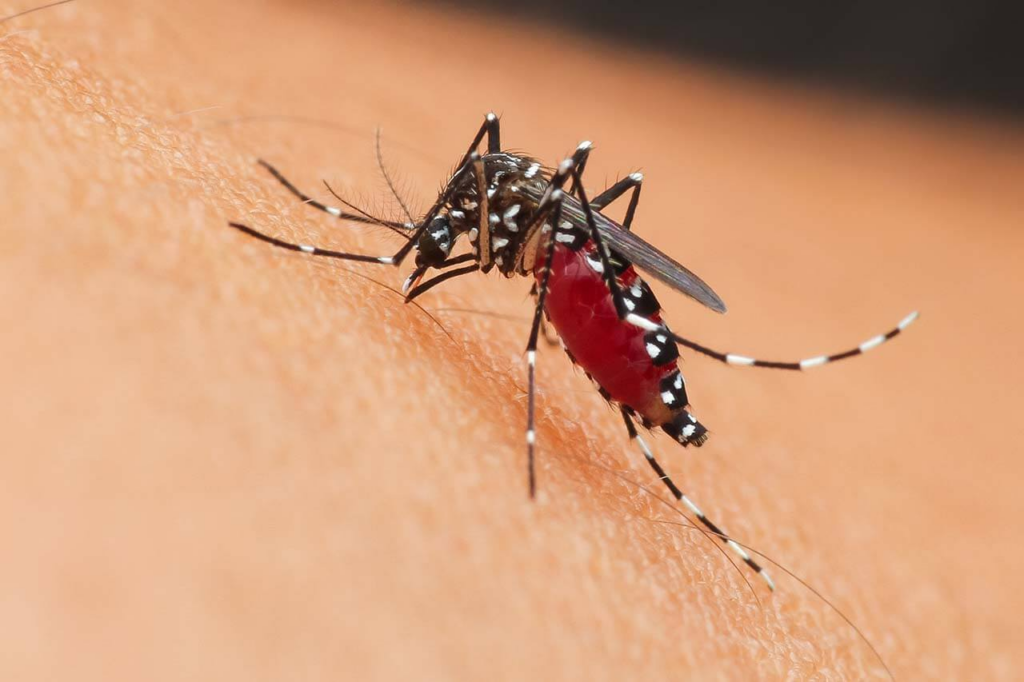
Seasonal Protection Plans
We have plans to keep mosquitoes away all season. These plans include regular checks and treatments. So, you can have fun outside without mosquitoes bothering you.
Recognizing and Treating Mosquito-Borne Illnesses
It’s important to know the signs of mosquito-borne illnesses. These diseases can cause serious health problems if not treated quickly. We need to watch for symptoms and act fast if we think we or our family are sick.
Warning Signs That Require Medical Attention
Look out for high fever, headache, muscle pain, and rash. Zika virus and dengue fever often show these signs. If you have these symptoms, see a doctor, even if it’s during peak mosquito times.
Severe symptoms like confusion, seizures, and trouble breathing need quick medical help. These could mean serious problems like encephalitis or severe dengue. Getting help early can make a big difference.
Diagnostic and Treatment Approaches
Doctors use physical checks, medical history, and lab tests to diagnose these illnesses. They might take blood tests to find the disease-causing pathogen. Knowing how doctors diagnose helps us get the right care.
Treatment depends on the disease. For some, it’s just about easing symptoms because there’s no cure. For example, rest, drinking water, and pain relievers are often suggested for chikungunya. In serious cases, the patient might need to stay in the hospital.
Conclusion: Protecting Your Family from Mosquito-Borne Diseases
We need to protect our families from mosquito-borne diseases. This means understanding the risks and taking steps to prevent them. We can do this by getting rid of mosquito breeding spots, using safe repellents, and wearing protective clothes.
It’s important to know about diseases like West Nile Virus, Zika Virus, and Dengue Fever. We should also know when to seek medical help. By preventing mosquito bites and controlling their numbers, we keep our families safe.
Preventing mosquito-borne diseases is key. We can do this by working together and being proactive. Vinx Pest Control offers programs to help keep your family and home safe from mosquitoes.
FAQ
Q: What diseases do mosquitoes spread?
A: Mosquitoes spread many diseases. These include West Nile Virus and Eastern Equine Encephalitis. They also spread La Crosse Encephalitis, St. Louis Encephalitis, Zika Virus, Dengue Fever, Chikungunya, and Malaria.
Q: How do mosquitoes transmit diseases?
A: Mosquitoes get infected by drinking blood from sick animals or people. Then, they spread the disease to others through their bites.
Q: What are the most effective ways to prevent mosquito bites?
A: To avoid mosquito bites, use EPA-approved repellents. Wear protective clothes and use mosquito netting.
Q: How can we eliminate mosquito breeding grounds?
A: Get rid of standing water to stop mosquitoes from breeding. Use landscape management and keep water features clean.
Q: What are some DIY mosquito control solutions?
A: Use natural predators and homemade traps to control mosquitoes. Also, plant mosquito-repelling plants.
Q: Why is professional mosquito control necessary?
A: Professional services, like Vinx Pest Control, offer complete mosquito management. They use advanced technologies and have seasonal plans for control.
Q: What are the warning signs of mosquito-borne illnesses?
A: Watch for fever, headache, and rash. If you have these symptoms, see a doctor right away.
Q: How are mosquito-borne illnesses diagnosed and treated?
A: Doctors use different methods to diagnose and treat diseases. They will tell you the best way to get better.
Q: What mosquito species are responsible for transmitting diseases?
A: Aedes, Anopheles, and Culex mosquitoes spread diseases.
Q: How can we understand the mosquito life cycle to control their populations?
A: Knowing how mosquitoes live and breed helps control them. It’s key to stopping their growth.
Q: What are some effective mosquito repellents?
A: Use EPA-approved repellents. Look for DEET, picaridin, or oil of lemon eucalyptus.
Q: How can we protect our families from mosquito-borne diseases?
A: Use repellents, get rid of breeding spots, and get professional help. These steps keep your family safe.



